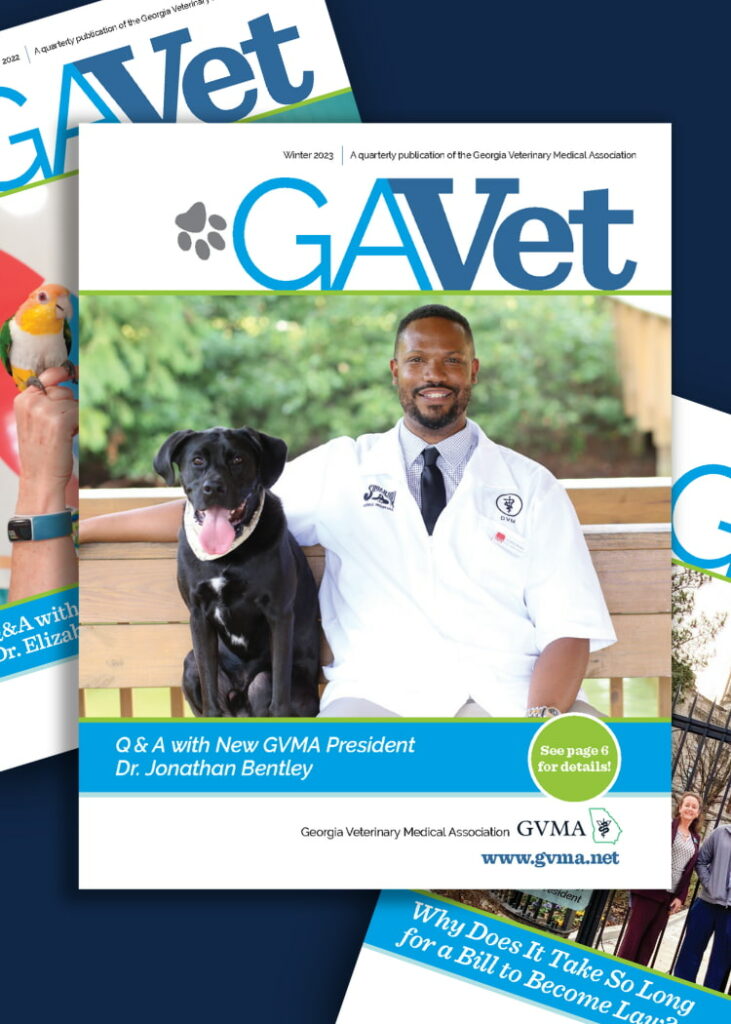by Dr. Justin Toth, 2021 GVMA President
Telehealth During COVID-19
Given a significant boost by the pandemic, telehealth is now an integral part of veterinary medicine. The concept of telehealth may seem new, but veterinarians have been using this method for decades. With the invention of the telephone in 1876, veterinary telehealth likely started soon thereafter.
Georgia Rules for Telehealth
Telehealth is defined as the overarching term that encompasses all uses of technology geared to remotely deliver health information or education. Telemedicine and teletriage are two components of telehealth:
- Telemedicine refers to the remote delivery of healthcare services. In other words, telemedicine allows veterinarians to evaluate, diagnose, and treat patients without the need for an in-person visit. In the State of Georgia, a valid VCPR is required prior to engaging in telemedicine.
- Teletriage refers to the initial assessment of a patient to determine if a potentially life-threatening animal health situation is present and to make recommendations for either veterinary care or conservative management. An example of teletriage would be an animal poison control service. A valid VCPR is not required for teletriage. However, teletriage does not allow for the diagnosis or treatment of a patient.
When to Use Telemedicine
According to the Veterinary Virtual Care Association (vvca.org), examples of cases to consider for telemedicine include anxiety, hair loss, head shaking, inappropriate elimination, itching, or visible skin lesions. Examples of cases to consider for teletriage would include constipation, coughing, laceration, post-surgical incision, vomiting, or ocular discharge.
Veterinarians have used telehealth for over a century. The demand for telehealth has grown exponentially and will likely continue to grow. With proper training, telehealth is a valuable service for both your practice and to your clients.

From the 2021 Summer Edition of “The GA Vet.”